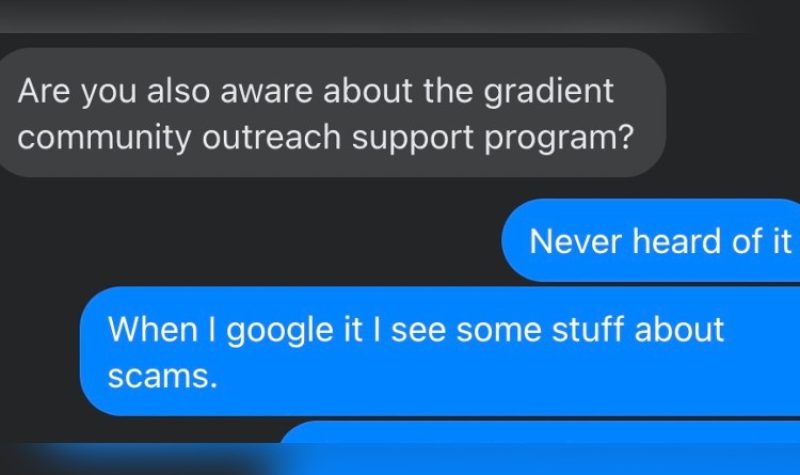A Sackville resident’s Facebook profile was recently duplicated, or spoofed, in an apparent failed attempt at a confidence scam.
The social media platform soon removed the fake account, after users reported the case of identity theft to Facebook.
But it’s just one of the online scams that proliferate during troubled times, according to an expert in identity theft and fraud.
“So often they're playing on people's emotions in their darkest hours,” said William Kresse, a professor at the Governors State University near Chicago, Ill.
CHMA News has agreed not to disclose the identity of the man whose identity was fraudulently duplicated in the attempted scam.
The fake account appeared to be an exact double of the original, using his name, profile picture and banner photo: a picture of his grandchildren.
The spoofed account attempted to add at least some of the man's contacts as friends. This reporter was among those who received a friend request. The spoofed account then initiated a chat using Facebook Messenger.
‘Gradient community outreach’
It started out with small talk, but the conversation quickly took a strange turn when the scamster asked about something called the "gradient community outreach support program."
This kind of scam is well-documented online.
Typically the fake account claims that the intended victim is eligible for a large financial assistance grant worth tens of thousands of dollars, but they have to pay a fee.
In fact, there is a Minnesota-based financial services company called Gradient with a program called the Gradient Gives Back Foundation that helps Americans in need.
The website of the real Gradient Foundation states: “Applications are only accepted through our website and we do not contact individuals through any private messaging services.”
It also includes a link to the website of the FBI's Internet Crime Complaint Center for people who believe they’ve fallen victim to a scam.
Scamsters thrive on disaster
These kinds of scams tend to multiply during times of economic hardship, according to Kresse.
“Very often, these scamsters are very good at reading and playing with human emotions,” he said in an interview with CHMA.
“During economic hardship, we see it, especially during disasters, whenever there is an earthquake,” he said.
There are multiple user-reported examples of the ‘gradient community outreach’ scam on websites such as ScamPulse.
The U.S. Federal Trade Commission has also warned of a similar scam targetting African-American church communities.
Sexual exploitation
In other online scams in New Brunswick, there have been multiple reports of sexual exploitation targetting youth, according to the RCMP.
Fake accounts on platforms like Snapchat and Instagram befriend teenage boys, convincing them to share “intimate images and videos.”
Then they are blackmailed for money, gift cards and e-currency, with the threat that the photos and videos will be released if the victims don’t pay up.
The RCMP have said they believe “organized crime groups overseas” are creating the profiles. In March, three people were arrested in Moncton in connection with the investigation.
Kresse said law enforcement agencies from different countries are "banding together" in an attempt to address the elusive online scamsters.
But he said the police in some places actually protect the perpetrators because of the money they bring into the community.
Scams ‘prevalent, in all forms,’ police say
Other scams reported by the RCMP in New Brunswick this month alone include a fake cryptocurrency deal and a fraudulent buy-and-sell furniture scam.
A spokesperson for the RCMP said in an email that “fraud has been prevalent of late, in all forms.”
The Canadian Anti-Fraud Centre, the federal agency which collects information on fraud and identity theft, states that $133-million had been lost by the end of March this year, with about 12,000 victims and more than 18,600 reports of fraud.
Protect yourself
The Canadian Anti-Fraud Centre has published a set of tips and tricks to help people protect themselves from scams and fraud.
Kresse advises people who use Facebook to search for their name every so often, to ensure that nobody has duplicated their profile.
"The bottom line is the law enforcement agencies can only do so much we must always be constantly aware and vigilant of these types of frauds," he said.
Listen to the report from CHMA:


